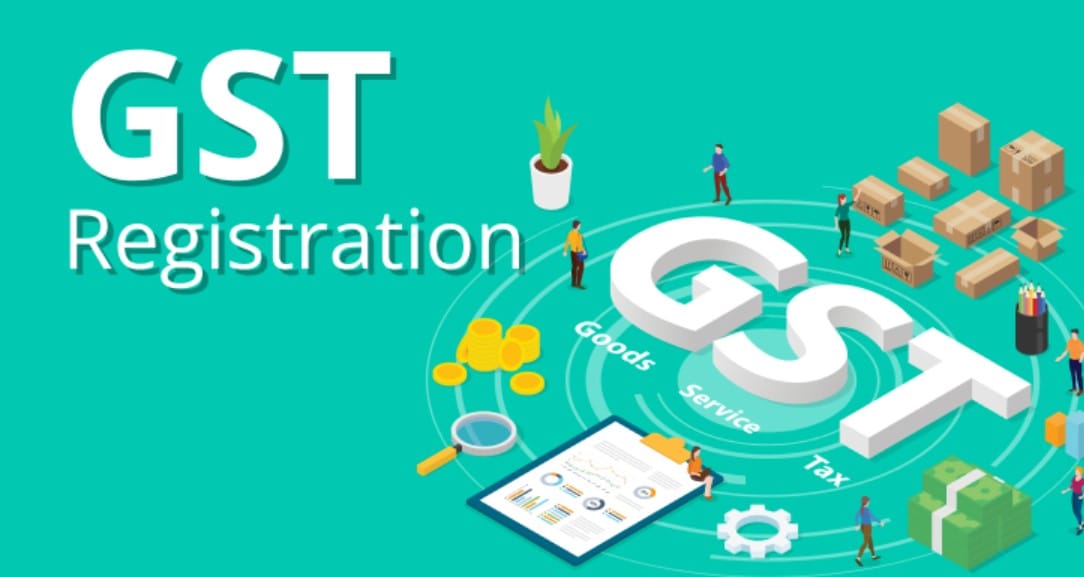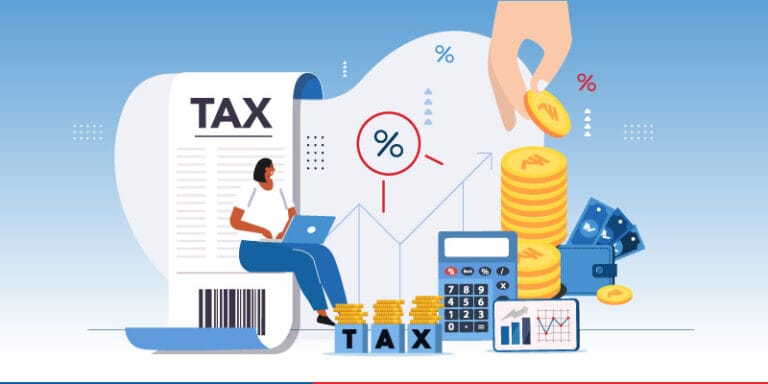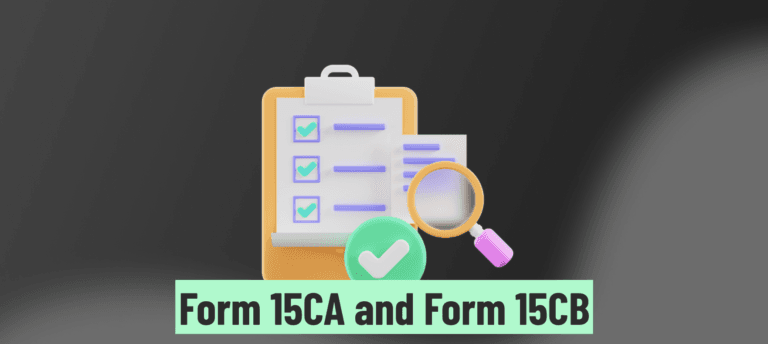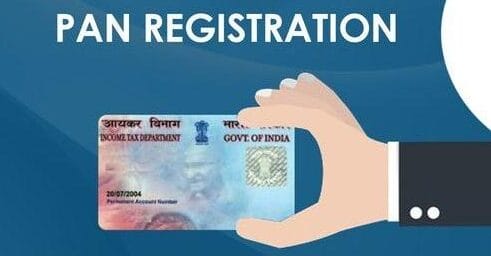GST registration is mandatory for businesses whose turnover exceeds the threshold limit prescribed under the GST law. It is also required for certain specific categories of persons, even if their turnover does not exceed the threshold.
Who Needs to Register for GST?
1. Threshold-Based Registration
- Businesses with an annual turnover exceeding Rs. 40 lakhs (Rs. 20 lakhs for special category states) for goods.
- Service providers with an annual turnover exceeding Rs. 20 lakhs (Rs. 10 lakhs for special category states).
2. Compulsory Registration
- Individuals making inter-state taxable supply.
- Casual taxable persons making taxable supply.
- Non-resident taxable persons making taxable supply.
- Agents of a supplier.
- Those paying tax under the reverse charge mechanism.
- Input service distributors.
- E-commerce operators.
- Persons who supply goods or services on behalf of other registered taxable persons (i.e., an agent).
Documents Required for GST Registration
1. Personal Details
- PAN Card of the business or applicant.
- Aadhaar card for individual applicants.
2. Business Details
- Proof of business registration or incorporation certificate.
- Partnership deed in case of a partnership firm.
- Memorandum of Association (MOA) and Articles of Association (AOA) in case of a company.
3. Identity Proof
- Identity and address proof of promoters/directors with photographs.
- PAN and Aadhaar of the authorized signatory.
4. Address Proof
- Principal place of business proof (electricity bill, rent agreement, property tax receipt).
- Additional place of business proof if applicable.
5. Bank Details
- Bank account statement/cancelled cheque.
- Bank passbook first page (showing account number, name, and IFSC code).
6. Digital Signature:
- Digital signature (DSC) of the authorized person (required for companies and LLPs).
7. Other Documents
- Authorization letter/Board resolution for authorized signatory.
GST Registration Process
1. Application Submission
- Visit the GST portal (https://www.gst.gov.in/).
- Click on “Register Now” under the “Taxpayers (Normal)” tab.
- Fill in Part-A of Form GST REG-01 with basic details like PAN, mobile number, and email address.
- Receive OTPs on mobile and email for verification.
2. TRN Generation
- Upon verification, a Temporary Reference Number (TRN) is generated.
- Use the TRN to fill in Part-B of Form GST REG-01.
3. Form Completion
- Fill in the remaining details in Part-B, including business information, promoters/partners details, principal place of business, additional places of business, goods and services supplied, bank account details, and verification.
4. Upload Documents
- Upload the required documents as per the prescribed formats and sizes.
5. Submission and Verification
- Submit the application using the digital signature or EVC (Electronic Verification Code).
6. Acknowledgment
- An acknowledgment number is generated for future reference.
7. Application Review
- The application is reviewed by the GST officer. If additional information is required, a notice will be issued within 3 working days.
8. Clarification
- Respond to any notices with the required clarifications or additional documents within 7 working days.
9. Approval and GSTIN Issuance
- Upon successful verification, the GST officer will approve the application and issue a GSTIN (Goods and Services Tax Identification Number) and a GST registration certificate in Form GST REG-06.
Post-Registration Compliance
- Display GSTIN: Display the GSTIN on the name board at the principal place of business and at every additional place of business.
- Invoice Format: Issue GST-compliant tax invoices.
- Returns Filing: File periodic GST returns (monthly/quarterly/annual) as applicable.
- Maintain Records: Maintain proper records of sales, purchases, input tax credit, and other relevant documents.
GST registration is a crucial step for businesses in India to comply with the GST regime. It enables businesses to legally collect tax from their customers and pass on the credit of the taxes paid on the goods and services purchased. Proper documentation and adherence to the prescribed process ensure a smooth registration experience. Seeking professional assistance can help in navigating the complexities of GST registration and compliance.
At Ujjwal Gupta & Co
We, at Ujjwal Gupta & Co, are dedicated to delivering personalized, high-quality solutions tailored to meet your financial and business needs. With our team of professionals and a client-first approach, we ensure that every challenge is met with expert guidance and strategic insight.
We are dedicated to ensuring your business’s success by providing best service practice available in the industry and that too at a cost effective pricing. Our team of experts is excited to work with you and provide the support you need to thrive in the Indian business landscape.
Our only motive is to create Value for Our Clients and accordingly, have a Client Value System at our Office.
So, let us help you navigate the complexities of finance and compliance, empowering you to focus on what matters most — growing your business. Get in touch today, and take the first step towards financial peace of mind.
GST Registration is the process by which a business or individual gets registered under the Goods and Services Tax (GST) system in India. Once registered, the entity receives a unique GSTIN (Goods and Services Tax Identification Number) and is liable to collect, pay, and report GST.
GST registration is mandatory for:
- Businesses with an annual turnover exceeding ₹40 lakh (for goods) or ₹20 lakh (for services) in most states.
- Businesses with an annual turnover of ₹10 lakh in special category states (e.g., northeastern states).
- Certain businesses, including interstate suppliers, e-commerce operators, and those involved in import/export, regardless of turnover.
- Casual taxable persons, agents, and input service distributors.
GSTIN (Goods and Services Tax Identification Number) is a unique 15-digit identification number assigned to every entity registered under GST. The GSTIN is based on the entity’s PAN and state code. It is used for all GST-related transactions, including filing returns, payments, and issuing invoices.
There are several types of GST registration:
- Regular GST Registration: For businesses exceeding the turnover limit.
- Composition Scheme: For small taxpayers with turnover up to ₹1.5 crore, allowing them to pay tax at a fixed rate without availing of Input Tax Credit (ITC).
- Casual Taxable Person: For businesses operating temporarily in a state without a fixed place of business.
- Non-resident Taxable Person: For foreigners supplying goods or services in India without a physical presence.
The following documents are typically required for GST registration:
- PAN card of the applicant or business.
- Aadhar card of the proprietor/partners/directors.
- Proof of business registration (partnership deed, incorporation certificate, etc.).
- Address proof (electricity bill, rental agreement, NOC from property owner).
- Bank account details (cancelled cheque, bank statement).
- Photographs of the owner/proprietor/partners.
The process for applying online involves:
- Visiting the GST portal (gst.gov.in).
- Clicking on the “Services” tab, then “Registration,” and selecting New Registration.
- Filling in details such as PAN, mobile number, email, and state.
- Uploading the required documents.
- Receiving a Temporary Reference Number (TRN) to track the application.
- Verifying the details via OTP and completing the process.
- Receiving the GSTIN upon successful registration.
If a business that is liable to register under GST fails to do so, the penalty can be significant:
- A penalty of 10% of the tax amount due or a minimum of ₹10,000 is levied for genuine errors.
- For deliberate tax evasion, the penalty is 100% of the tax amount due.
GST registration is mandatory for small businesses if their turnover exceeds the threshold limit (₹40 lakh for goods and ₹20 lakh for services). However, businesses with a lower turnover can voluntarily register for GST to avail of the benefits of Input Tax Credit (ITC) and expand their market reach.
Yes, a business with operations in multiple states must obtain separate GST registrations for each state. Additionally, a business engaged in multiple business verticals within a state can also apply for separate GST registrations for each vertical.
The composition scheme is a simplified GST scheme for small taxpayers with turnover up to ₹1.5 crore. Under this scheme:
- Businesses pay GST at a reduced fixed rate (e.g., 1% for manufacturers and traders, 5% for restaurants).
- The scheme offers ease of compliance but does not allow businesses to avail Input Tax Credit (ITC).
- Taxpayers under the composition scheme file quarterly returns and are not required to issue tax invoices.
Why Choose UGC?

Client Centric Approach
Client is the key driver of our service offerings. Our approach to service offerings is based on a client centric and customized approach. Our specialized teams are a mix of technical and industry experience in order to serve clientele for their specific needs.

Team Work
We have built high performing teams supported by strong work ethic. Our team is a mix of experts, professionals and support staff from technical and varied academic, social and ethnic backgrounds. We believe diversification plays a vital role in motivating the team.

Quick Turnaround
We always endeavour for a quick turnaround time to serve our clientele. We are supported by an experienced and client focussed support teams to offer timely services to our clientele. In case of any business exigencies and time sensitive service requirements, you can always count on us.

Open Communications
We believe that open communication is the core principle in order to demonstrate trust, build long lasting and valuable relationships with clientele. We are committed to ensuring transparency in communication, service offerings and delivery. We provide professional services to our clients.

Client Value System
We value for the Client time and thus, we offer services that are value for money. Quality professional services are provided to our clients, so that they are able to achieve their desired results. We are a quality trademark in the industry and thus, our clients count on us always.

Quality in Delivering Work
Our service offerings are driven by quality and reviews at every level. We strive to provide a qualitative and value-added delivery to our clientele. At all times, we endeavour to provide exceptional client service by meeting client expectations and driving client satisfaction.


















